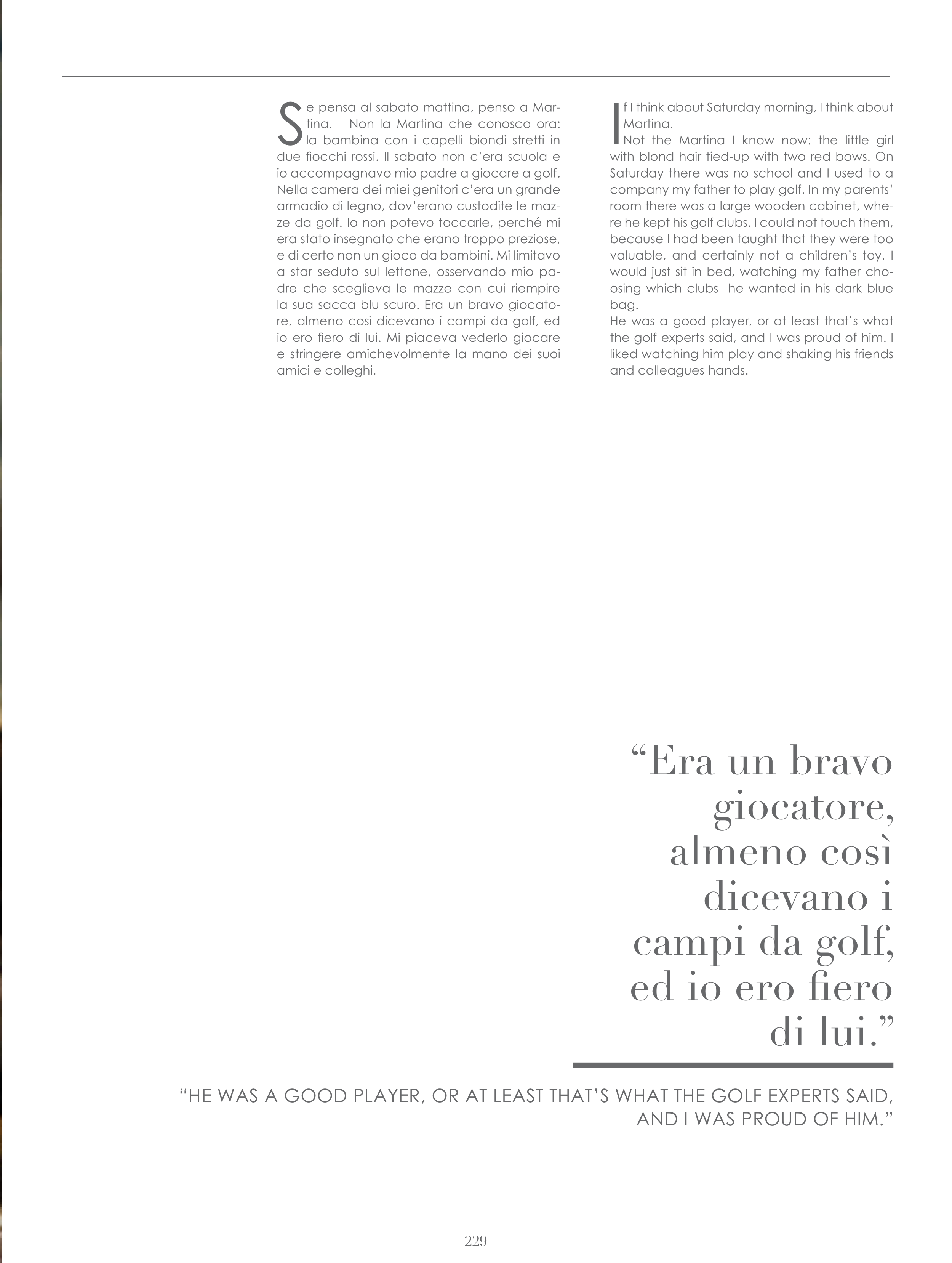229
S
e pensa al sabato mattina, penso a Mar-
tina. Non la Martina che conosco ora:
la bambina con i capelli biondi stretti in
due fiocchi rossi. Il sabato non c’era scuola e
io accompagnavo mio padre a giocare a golf.
Nella camera dei miei genitori c’era un grande
armadio di legno, dov’erano custodite le maz-
ze da golf. Io non potevo toccarle, perché mi
era stato insegnato che erano troppo preziose,
e di certo non un gioco da bambini. Mi limitavo
a star seduto sul lettone, osservando mio pa-
dre che sceglieva le mazze con cui riempire
la sua sacca blu scuro. Era un bravo giocato-
re, almeno così dicevano i campi da golf, ed
io ero fiero di lui. Mi piaceva vederlo giocare
e stringere amichevolmente la mano dei suoi
amici e colleghi.
I
f I think about Saturday morning, I think about
Martina.
Not the Martina I know now: the little girl
with blond hair tied-up with two red bows. On
Saturday there was no school and I used to a
company my father to play golf. In my parents’
room there was a large wooden cabinet, whe-
re he kept his golf clubs. I could not touch them,
because I had been taught that they were too
valuable, and certainly not a children’s toy. I
would just sit in bed, watching my father cho-
osing which clubs he wanted in his dark blue
bag.
He was a good player, or at least that’s what
the golf experts said, and I was proud of him. I
liked watching him play and shaking his friends
and colleagues hands.
“Era un bravo
giocatore,
almeno così
dicevano i
campi da golf,
ed io ero fiero
di lui.”
“HE WAS A GOOD PLAYER, OR AT LEAST THAT’S WHAT THE GOLF EXPERTS SAID,
AND I WAS PROUD OF HIM.”


